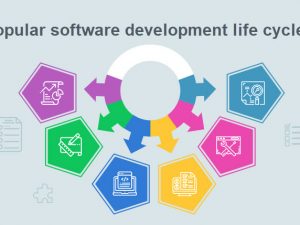TOP-20 most important Scrum terms
-
TOP-20 most important Scrum terms
To be on the same page with your colleagues, novice testers who are just starting to work in IT can find some terms complicated in team conversation. And if everything is more or less clear with ordinary «dailies», then the story point and increment of the product can frighten you or at least make you cautious. To explain the general terminology of the Scrum methodology, we have prepared our top 20 most common terms.
-
The most complex Scrum terms and their explanations
Previously, we reviewed the basic terminology of Scrum software development methodology. However, the topic is not fully covered, so we have prepared the second part of the article, where you will learn about the peculiarities of some complex Scrum terms that are often a stumbling block for testers.
-
Test Strategy and test plan. What is the difference?
Both documents are an inseparable and equally important part of any project. If properly executed, the testing process will result in a product of the highest quality. However, if some steps are skipped, there is a chance that the final product may still have bugs. Also, keep in mind that there is no universal document that can be used as a model and applied to all types of projects.
-
Roles and responsibilities in the software testing team
Software testing is a set of methods used for checking whether a product meets its technical requirements. Due to the complex and multi-level nature of the testing process, it is performed by a team of professionals with clearly defined knowledge areas and responsibilities assigned to each specialist individually. In this article, we will look at what the roles in a software testing team are, along with the responsibilities they take on when working on a project.
-
QA team work management
The organization of work in each team begins with the understanding of each participant, what exactly needs to be done and what is the goal. This article will be devoted to the conditions of work in outsourcing, that is, not on an «eternal» project, but in the case of frequent project changes.
-
Agile methodology of software development
Agile is a powerful methodology for developing software that not only offers benefits for a development team but provides a number of significant business advantages for the customer. Agile helps project groups deal with many common pitfalls in a more controlled manner (for example, schedule unpredictability and the importance of making changes in a project fast). Agile reaches goals in a flexible and business-oriented way by reorganizing and rethinking actions connected with software development.
-
What is the difference between Scrum and Kanban
Scrum and Kanban are project management techniques. They are representatives of the popular Agile family methodology. These methods are flexible and iterative and can be used in any industry, but they are best suited for the IT industry. Both methods are close, so their tools can be used in combination. A hybrid approach is very common when the best of Scrum and Kanban is used.
-
What is Test plan? What is it for? What does the test plan consist of?
What is Test plan? Test plan – is a document, which describes the entire scope of testing, starting from the description of the test object, strategy, schedule, criteria for starting and ending testing, to the equipment required in the process of operation, special knowledge, as well as the risk assessment with options for their resolution. [...] -
Planning (Scrum) Poker
For many people, the mention of poker evokes associations with a game in which the abilities to predict the situation in advance, to concentrate and to bluff perfectly are valued. Besides gambling, poker can also be used for planning work.
-
Popular software development life cycles
To facilitate the design, creation and release of a quality software product, there are various models of the software life cycle. Project requirements are crucial when choosing a development cycle approach. In this article, we will consider the basic methodologies of the software development.












